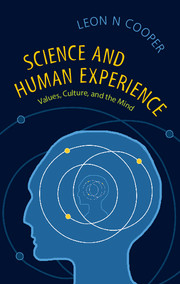Book contents
- Frontmatter
- Dedication
- Contents
- Preface
- Acknowledgement
- Part One Science and Society
- 1 Science and Human Experience: (Mephistopheles Is Alive and Well and Living in the Space Age)
- 2 Does Science Undermine our Values?
- 3 Can Science Serve Mankind?
- 4 Modern Science and Contemporary Discomfort: Metaphor and Reality
- 5 Faith and Science
- 6 Art and Science
- 7 Fraud in Science
- 8 Why Study Science? The Keys to the Cathedral
- 9 Is Evolution a Theory? A Modest Proposal
- 10 The Silence of the Second
- 11 Introduction to Copenhagen
- 12 The Unpaid Debt
- Part Two Thought and Consciousness
- Part Three On the Nature and Limits of Science
7 - Fraud in Science
from Part One - Science and Society
Published online by Cambridge University Press: 05 November 2014
- Frontmatter
- Dedication
- Contents
- Preface
- Acknowledgement
- Part One Science and Society
- 1 Science and Human Experience: (Mephistopheles Is Alive and Well and Living in the Space Age)
- 2 Does Science Undermine our Values?
- 3 Can Science Serve Mankind?
- 4 Modern Science and Contemporary Discomfort: Metaphor and Reality
- 5 Faith and Science
- 6 Art and Science
- 7 Fraud in Science
- 8 Why Study Science? The Keys to the Cathedral
- 9 Is Evolution a Theory? A Modest Proposal
- 10 The Silence of the Second
- 11 Introduction to Copenhagen
- 12 The Unpaid Debt
- Part Two Thought and Consciousness
- Part Three On the Nature and Limits of Science
Summary
Fraud is a problem in science, as it is in many human activities. Instances of fraud are relatively rare, but when they happen they tend to garner a lot of attention. Does fraud undermine the sanctity of science – and by the way who ever said science should be sanctified?
This essay is based on an article originally published in the George Street Journal, 16(15), in 1991.
Recent highly publicized cases of “scientific fraud” have elicited much excited comment. We hear cries for watchdogs and oversight committees. We read perturbed editorials speaking of a scientific Watergate. But let's put the situation in perspective and avoid creating something worse than the disease – a cure.
In science, as elsewhere, lying, cheating, stealing, and fraud are distinctly unpleasant. Because scientists are human, one must anticipate that in their daily as well as their scientific activities, they will occasionally stray. What is surprising is our surprise. I recall my mother pointing out to me, a hopeful teenage scientist, an embarrassing situation in which scientists were involved. My smart-aleck response was, “So what? Everybody does it.” “But,” she responded, “these are scientists.”
Well, the fact is that scientists do it, too. Under pressure for promotions, grants and the necessity to publish, we can be “reasonably assured” that corners are cut, work is sometimes sloppy and, occasionally, I suppose, there is deliberate fraud.
- Type
- Chapter
- Information
- Science and Human ExperienceValues, Culture, and the Mind, pp. 64 - 67Publisher: Cambridge University PressPrint publication year: 2014

